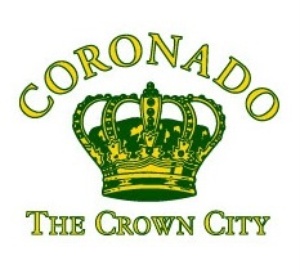Medical marijuana again leads the city council agenda. At its December 15 meeting the council voted 4 to 1 to ban the establishment and operation of marijuana cultivation, processing, delivery and dispensary activities in the City of Coronado.
Councilman Richard Bailey voted against the ordinance because it didn’t allow deliveries to continue. He pointed out that there were a number of elderly patients, suffering from cancer and other conditions known to be alleviated by the drug, who could not be expected to drive to a dispensary San Diego.
“I have heard several personal stories from Coronadans who have cared for sick family and friends that relied on home deliveries for their medication. I could not support eliminating the delivery of a prescription drug for patients that are too sick to travel,” Bailey wrote on blog posts defending his vote.
A lively discussion quickly erupted online and in print on the merits of the council’s decision.
The issue is coming back to the council for a second reading but has nothing to do with the controversy. It is something required for all ordinances. The first reading took place before Christmas and only one resident, Charles Crehorn, expressed misgivings. Councilwoman Carrie Downey noted that not one person had written to her about the issue.
Now that the holidays are over, people may well be more focused on this, especially given the controversy over the council’s initial decision. This is something City Manager Blair King seems to be acutely aware of. In a memorandum to the council dated January 5, 2016 he offered council members ways to amend the ordinance.
It could “allow commercial deliveries” without regulation by not taking action, or it could establish its own delivery regulations based on provisions in California’s current Health and Safety code for medical marijuana delivery, he wrote. These provisions include:
Drivers must be 18 years old, employed by a dispensary and carry an identification card. Drivers must also submit to a criminal background check and cannot be a former felon.
Every year the delivery services must obtain a permit from the police department and must affix to the delivery vehicles. No advertising is allowed on the vehicles.
Drivers must also carry a logbook with the recipients’ addresses, phone numbers, and the type and quantity of marijuana delivered. Recipients must sign for deliveries. The logbook is subject to inspection by law enforcement at any time.
In the same memorandum he also noted that the “League of California Cities recommended as a ‘best practice’ that cities wait until the Bureau of Medical Marijuana Regulation has engaged in rulemaking activity before allowing for commercial cultivation, delivery or transport.”
The BMMR is a new agency created by the Medical Marijuana Regulation and Safety Act signed into law by Governor Jerry Brown in October. The agency has yet to establish its own regulations. Those will not go into effect until January 1, 2018.
Heeding the same advice, the La Canada Flintridge City Council also voted to ban all marijuana activities at its December 22 meeting, according to the Los Angles Times.
In addition to taking a second look at medical marijuana issues, the council has been asked by King whether it wants to establish a formal infrastructure memorial/recognition program. The Department of Public Services began one some years back that has been popular, but it lacks a coherent policy and council direction.
Still, the program has proved popular, yielding 100 memorial benches, four picnic benches, a number of trees and plaques around the city. There may be more. According to the staff report, not all of them have been mapped.
Moreover there are no criteria governing these personal tributes. One plaque memorializes a couple’s first meeting. There are a number of rooms in public buildings that people assume they have naming rights to because of a donation that they made to a particular program. There is no official donation requirement. Some don’t cover the cost of installation. For example, recently the city received $3,000 for a bench that cost $4,000 to install.
To bring some order and clarity to the process King asked the city council to decide if it wants to continue the program and if so, to articulate more coherent guidelines such as how much has to be donated before naming rights are granted, who or what can be memorialized, and if the memorial will continue in perpetuity or sunset at some point.
In a related issue the council has been asked to approve donation levels set by the Parks and Recreation Commission for a memorial wall on the John D. Spreckels Center, formally known as the Senior Activity Center. The levels range from $2,500 to $50,000.
The council will fill two vacancies on the Transportation Commission following the resignation of John Moutes and John Tato II.
The council meeting is on Tuesday, January 5, 2016 at 4pm in the council chambers at 1825 Strand Way.





